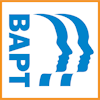by Susan Nash
 Have you ever run a Type workshop that has not gone as planned and you wonder why? In this plenary session, you will learn relevant knowledge, core skills and innovative techniques to help ensure every session you facilitate “lands” successfully.
Have you ever run a Type workshop that has not gone as planned and you wonder why? In this plenary session, you will learn relevant knowledge, core skills and innovative techniques to help ensure every session you facilitate “lands” successfully.
Often it is too easy to confuse “presenting” or “teaching” with “facilitating” a very different range of skills that help engage all participants in the learning journey. In this session, we will cover the key principles in helping all Types to participate, enjoy and learn about Type in a constructive and positive way.
The key elements we will review are:
- How to strike a balance between giving participants the information they need (the “What” of facilitation) and delivering a session in such a way that everyone will internalize the learning (the “How” of facilitation).
- How to create psychological safety; a place where people feel they can contribute without negative judgment while also being in a state of “relaxed alertness”.
- How to design an effective active learning workshop using the T.E.A.C.H. Methodology, which can build the bridge from structured course design to an engaging learning climate.
- How to vary delivery styles and pace for different parts of the session to ensure the program flows effectively
Task and Group Process
Facilitation varies from presenting and teaching because it applies the principles of Andragogy – adult learning theory. For this approach, participants tend to be self-directed learners in a multi-directional context. Applying the knowledge of Task and Group Process can enable a more effective learning process. In the session, we will clarify and explore in detail the components of Task and Group Process using a great facilitator-learning tool.
Psychological Safety
Neuroscience research has shown that if learners are not aroused at all they will not engage. Equally, if they are too aroused, particularly with negative emotions, they will not be able to absorb the content. We will share a simple process to establish a state of “moderate arousal” that can help to build trust and engagement.
The T.E.A.C.H. Methodology
Many small and large companies have implemented the T.E.A.C.H. Methodology to standardize the course development process and to enable a multi-directional energy flow throughout learning. This approach is broken down as follows:
- Topic: (introduce what will be covered)
- Engage (get the audience into an activity that will introduce or stimulate the learning)
- Abstract (provide the conceptual information needed)
- Concrete (bring in real examples, exercises, etc.to bring the topic to life)
- How (get the audience talking about the ways they will sustain and integrate the learning going forward).
Against this framework, facilitators can structure programs that will have the right flow to ensure a strong learning experience. In the session, we will practice applying this approach to a Type Module.
Flex Style and Approach
There can be the assumption that in order to be an effective Facilitator, you have to be constantly upbeat, energetic and fast-paced. In reality, different components of the workshop require different energies, pace and emphasis in order to ensure clarity. We will look at the Interaction Style framework in relation to this need using another tool from the Flawless Facilitation toolkit.
Look forward to learning and experiencing key facilitator knowledge and engagement tools!
About the Author
 Susan Nash is owner of EM-Power, Inc., author of over 11 books, nine on Whole Type, and a global speaker on psychological type and its applications in improving self-understanding, communication, leadership and team effectiveness. She has been a President of APT International (APTi) and was the winner of the 2017 APTi President’s award. Email: susan.nash@type-academy.co.uk.
Susan Nash is owner of EM-Power, Inc., author of over 11 books, nine on Whole Type, and a global speaker on psychological type and its applications in improving self-understanding, communication, leadership and team effectiveness. She has been a President of APT International (APTi) and was the winner of the 2017 APTi President’s award. Email: susan.nash@type-academy.co.uk.

